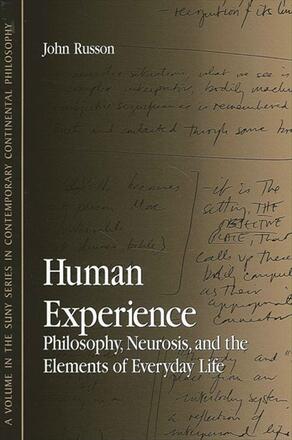
Human Experience
Philosophy, Neurosis, and the Elements of Everyday Life
Alternative formats available from:
Proposes that philosophy is the proper cure for neurosis.
Description
Co-winner of the 2005 Biennial Book Prize for the best philosophy book published in English presented by the Canadian Philosophical Association
John Russon's Human Experience draws on central concepts of contemporary European philosophy to develop a novel analysis of the human psyche. Beginning with a study of the nature of perception, embodiment, and memory, Russon investigates the formation of personality through family and social experience. He focuses on the importance of the feedback we receive from others regarding our fundamental worth as persons, and on the way this interpersonal process embeds meaning into our most basic bodily practices: eating, sleeping, sex, and so on. Russon concludes with an original interpretation of neurosis as the habits of bodily practice developed in family interactions that have become the foundation for developed interpersonal life, and proposes a theory of psychological therapy as the development of philosophical insight that responds to these neurotic compulsions.
John Russon is Associate Professor of Philosophy at the University of Guelph. He is the author of The Self and Its Body in Hegel's Phenomenology of Spirit. He is also the coeditor (with John Sallis) of Retracing the Platonic Text and (with Michael Baur) Hegel and the Tradition: Essays in Honour of H. S. Harris.
Reviews
"…Human Experience is a genuine and original work of philosophy … It is exemplary in its clarity and rigor of expression. " — Continental Philosophy Review
"The book is persuasively insightful and an excellent translation of phenomenological-hermeneutical ideas, resonating with the works of Hegel, Heidegger, Merleau-Ponty, and others, into a practical application concerning the nature of therapy. " — Shaun Gallagher, editor of Hegel, History, and Interpretation
"This is a daring book. Russon has clearly challenged many prejudices. He describes experiences that question the prejudice about presence, about our bodies being mass or extension, about memory being subjective, and about the normal self being understood as a 'self-contained choosing power. '" — Leonard Lawlor, coeditor of Chiasms: Merleau-Ponty's Notion of Flesh